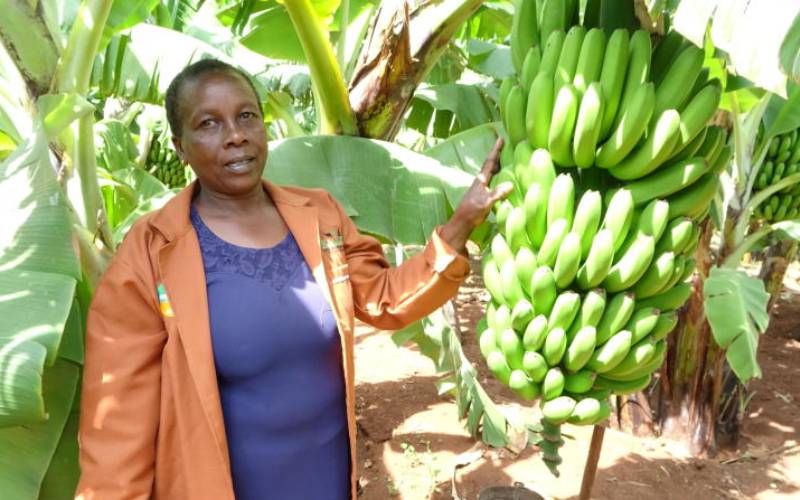×
The Standard e-Paper
Stay Informed, Even Offline

Mrs Rose Chepkwony a banana farmer from Laliat village in Ainamoi constituency Kericho County. [Nikko Tanui, Standard]
Soil fertility in the country is on the decline due to continuous farming without sufficient application of nutrients.